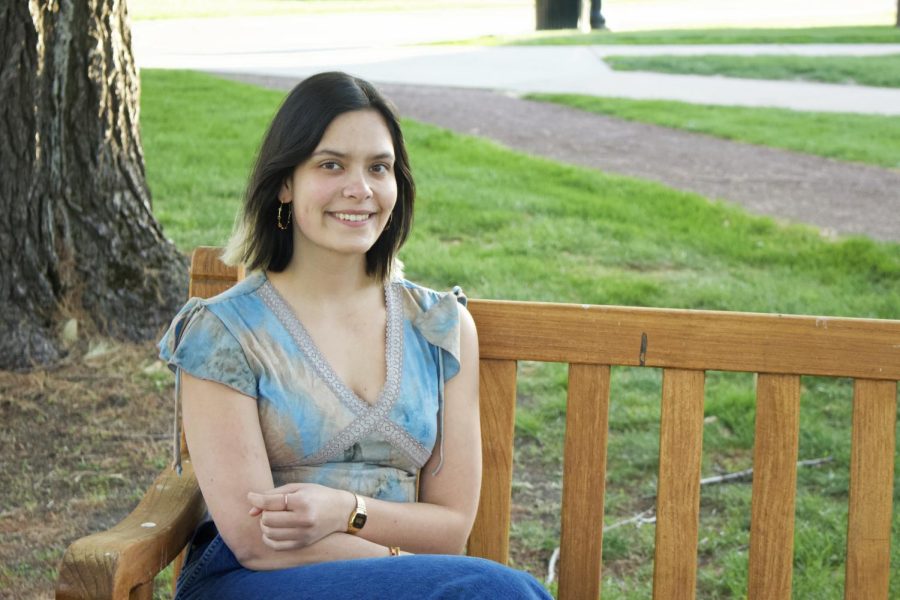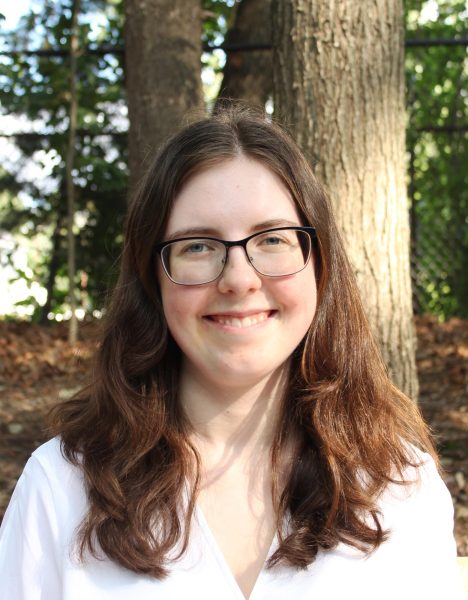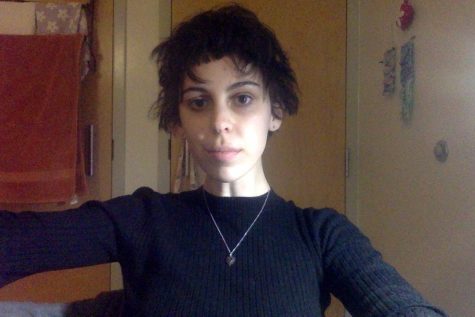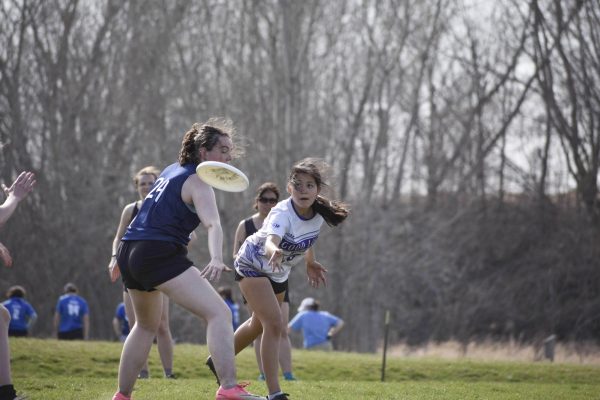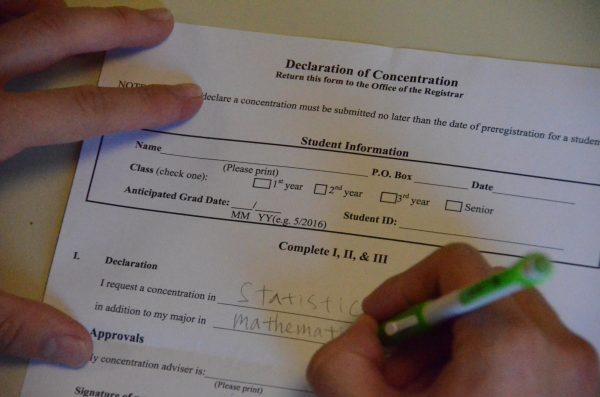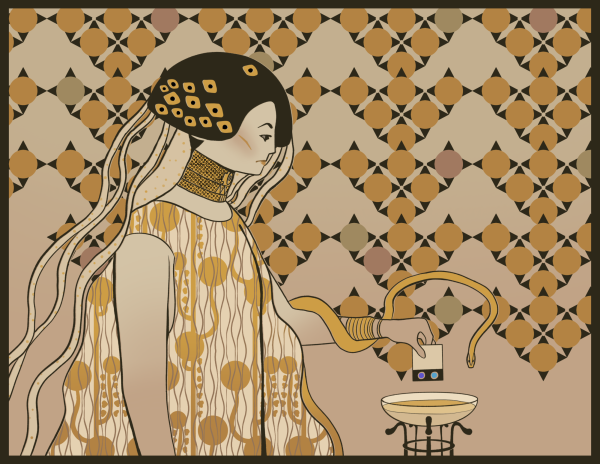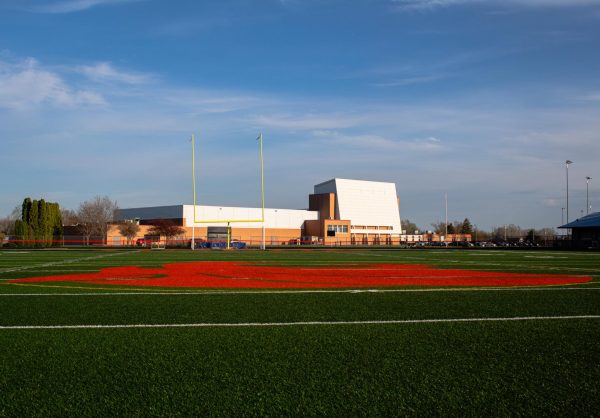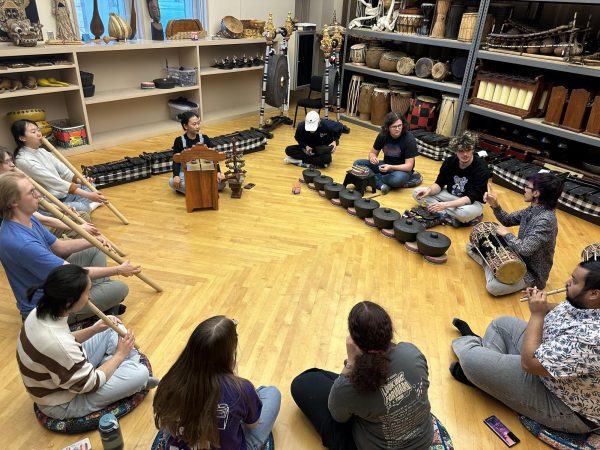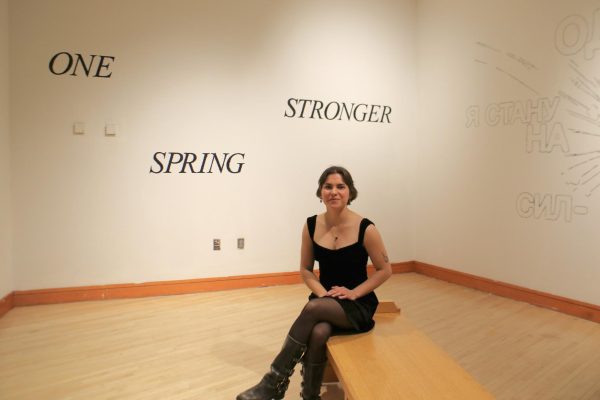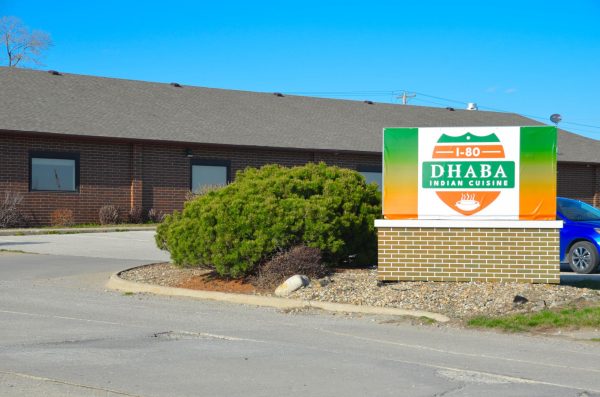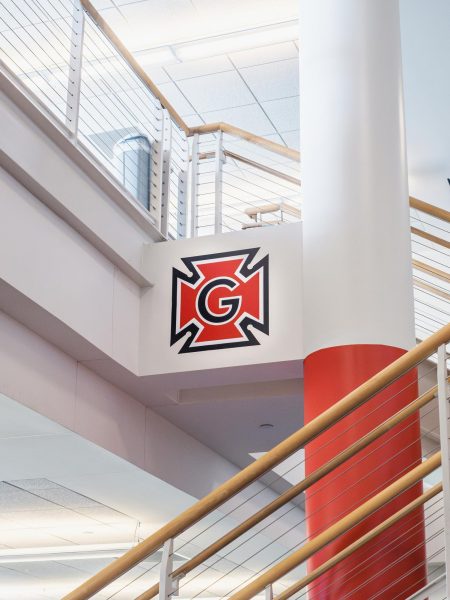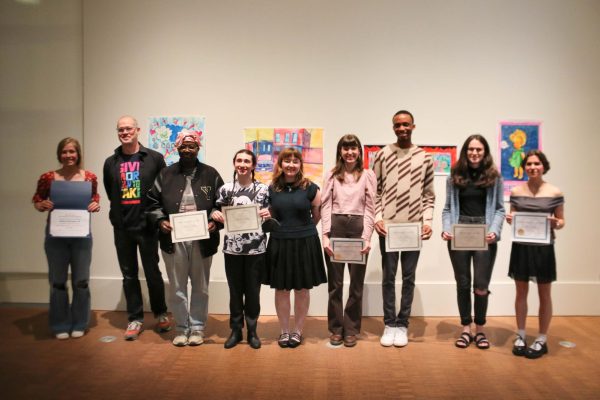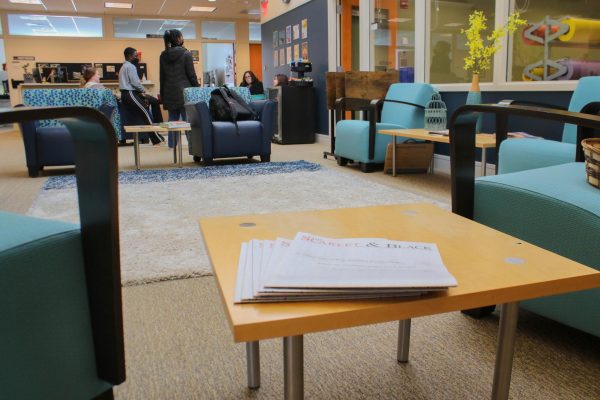Maya Gardner
May 8, 2023

Maya Gardner `23 likes getting her hands dirty. Originally intending to major in psychology, her plans changed after she took an intro-level biology course called “Sexy Beast,” where she and her classmates examined reproductive mating behaviors of various animals — specifically crickets and bean beetles.
“I don’t really like bugs, but it did convince me that bio was what I really wanted to do,” Gardner said. She said the nature of “Sexy Beast” showed her how fulfilling fieldwork could be — specifically, the hands-on aspect of it.
Her experience in the biology department convinced her to become a biology major with a statistics concentration, and she has continued to pursue her passion for the field. She has a photo of herself knee-deep in water at a recent biology lab field trip.
In addition to classes on Grinnell’s campus, Gardner also studied abroad in South Africa during her sixth semester. One of her favorite memories was seeing all sorts of animals while doing fieldwork, particularly baby elephants. “My friends would always be like, ‘Maya, there’s a baby elephant!’ and, you know, my phone was out immediately,” Gardner said.
The coolest part, according to Gardner, was being able to perform biodiversity surveys in areas of the park that others were not allowed to enter. “It was just a really, really incredible experience,” she said.
During her study abroad experience, Gardner had the chance to complete a final project on the lilac-breasted roller, a bird native to the area. She said she spent up to eight hours a day completing photographic surveys of the bird, and her group’s work has been published in the University of Cape Town Biodiversity Observations journal.
On campus, Gardner is a senior interviewer for the office of admissions, and she was previously a tour guide. Part of what makes that job fun for her is being able to help prospective students better understand campus culture. She said she enjoys learning about prospective students and “telling them what we value and who we are.”
In her second year, she also volunteered for the Liberal Arts in Prison Program, which provides opportunities for people who are incarcerated to further their education. Gardner tutored students in math as a part of this program and she said she found the work very fulfilling.
“I think that program makes it accessible for people who have not had the ability to be taught math in that way before,” Gardner said, referring to the one-on-one support the program provides.
One aspect of the program she enjoyed was being able to tutor students who were “actually interested in math.” Gardner said that some of the students were working towards their GED, and others were learning just for fun.
“Access to education is something that I have been thinking about, especially as I think about where I want to go next,” she said. After graduation, Gardner plans to work in conservation biology, and she is applying for jobs in the field.
After her second year on campus, Gardner took a gap year due to the COVID-19 pandemic, which allowed her to postpone her plan to study abroad until restrictions loosened. Part of her gap year was spent at home in New York City where she stayed in her apartment most of the time. She spent the rest in Grinnell, where she enjoyed being able to walk a few blocks without running into someone — quite the contrast from being cooped up in a city apartment amidst the pandemic. “It was really nice having that space again, and also just being with my friends after such a long time,” she said.
Gardner spent the year applying to summer internships and working at Jimmy John’s. She also spent lots of time with friends, many of whom were also on gap years, watching movies and making some really great food. She said taking a year off was a decision she is proud of.
“I think the one thing my gap year has kind of taught me was it’s okay to take a breather, and it’s okay to not know what you’re gonna do with your life,” Gardner said. “I think that’s something that maybe high school Maya would freak out about, but I’m very okay with it.”
Some of Gardner’s fondest memories from before the pandemic include the Winter Waltz, Pub Quiz and Harris Center events. She recalled the Waltz held her first year, featuring string lights hanging from the Main Hall quad ceiling and elaborately dressed attendees.
Gardner also referenced Disco Harris, calling it her “favorite Harris” because of the live music aspect. When it was canceled at the end of her second year due to the pandemic, she and her friends held their own version titled “Disco Langan.” “We all dressed up in full-out disco outfits, and we were playing disco music and it was really, really fun,” Gardner said. “I just remember Harrises being really, really prominent my first and second year, and I do miss it a little.”
While these campus traditions are important to Gardner, she said that she values the campus community just as much, if not more. Ultimately, it was the students that drew Gardner to Grinnell in the first place. Her college choice was a difficult one, and in the end, the prospective and current students she spoke to while visiting campus convinced her to commit.
When I came here, they were like, ‘you don’t even know what self-gov is,’ and so it’s always gonna be changing, and I think that’s just the nature of it all. But I think the students care, and that’s maybe the most important thing
— Maya Gardner
“It was kind of just a gut feeling that I liked the people here,” Gardner said about her choice to attend Grinnell. She said she has yet to regret that decision.
She acknowledged that campus culture is different post-pandemic, referencing a recent conversation she had with a second-year student who did not know what Titular Head was. However, she said that changing traditions — and reminiscing fourth-years who miss aspects of their experience — have actually always been around.
“When I came here, they were like, ‘you don’t even know what self-gov is,’ and so it’s always gonna be changing, and I think that’s just the nature of it all. But I think the students care, and that’s maybe the most important thing,” Gardner said.




























































